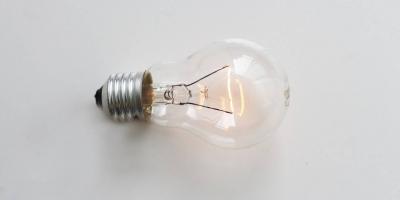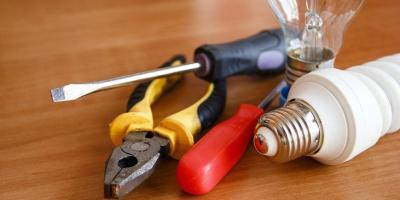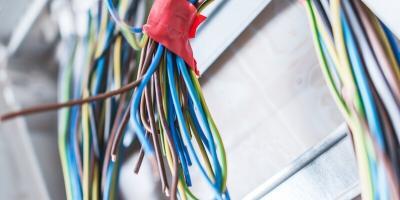6 Electrical Dangers!
Electricity is one of the most essential sources of power that we all use in our homes on a daily basis. However, if it is not handled or managed appropriately, it can potentially result in serious injuries and possibly death. Even though both the incident and fatality rates associated with electricity have significantly reduced in the last few years, electricity still poses as a serious threat. According to a new report, nearly fifteen Australians are killed and three hundred hospitalised annually as a result of preventable electrical hazards in existing households.
Electrical hazards emanate from contact with exposed live electrical parts, faults which could result in explosions or fire where an electrical fault is the primary ignition source. All individuals who perform electrical work, interact with energised electrical equipment, use and maintain electrical equipment must always remain alert to the risks involved with electricity.
Learning and knowing some of the most common home electrical hazards is the ultimate way to help prevent a potentially dangerous electrical accident from happening. Below are some of the most common hazardous electrical issues in residential homes.
1) Poor/outdated wiring.
According to the National and Fire Prevention Association, faulty wiring is the leading cause of residential fires. A significant number of people usually resort to Do-It-Yourself (DIY) projects in order to save money on hiring a qualified tradesman. Even though it may seem like a budget-friendly practice, it can potentially land you into a whole host of problems. Electrical wiring should be left to the experts!
To minimise the risks associated with poor wiring, have your home inspected by a certified electricianannually so you may know if there is a need to repair or replace a particular fixture. Poor electrical wiring greatly increases incidents of arc faults, surges and house fires. Always keep an eye on things like loose connections, overheated cables damaged appliances, cracked wire insulation as well as frayed cords.
2) Uncovered electrical outlets.
Unprotected electrical outlets pose a huge risk for households with kids. Toddlers are always curious about metal objects and are likely to touch the outlets with their fingers. Their inquisitive nature could result in a life-threatening incident which could have been prevented.
Protect your young ones from burns, shock and electrocution by covering the outlets with efficient plastic closures. You can equally install child safety wall plates for a more permanent solution. If you didn’t know, these safety plates come equipped with built-in outlet covers which automatically snap into place when the switch is not in use.
3) Electrical switches installed near water sources.
This is most common in places such as the bathroom, kitchen and other locations in your house which have water. Water is a good conductor of electricity and this implies that electrical outlets should be installed far away from it. For safety purposes, always instruct your electrician to located outlets at a fairly far distance from water sources within the house.
4) Overloaded electrical switches and strips.
It is common knowledge that power outlets are only designed to handle a certain amount of electrical energy. You should not plug in excess appliances into an outlet because this could potentially overload it. An overloaded outlet can make electrical wires to overheat and this could, in turn, result in electrical fire. If you have power-extensive devices, you are highly advised to upgrade your power strips to a relatively higher rating.
5) Light bulbs.
You probably don’t consider an electrical bulb as a major electrical hazard in your home. These simple devices have the potential to cause a fire hazard especially when exposed to flammable materials. Other than that, you are also highly advised to be extremely cautious when replacing your bulbs. Always ensure the switch is turned off before replacing your bulbs. Equally, your hands should be dry to evade the risk of shock and electrocution.
It is also imperative to mention that using a bulb with a higher wattage than the fixture itself can make the light’s wiring to overload, a phenomenon that may, in turn, cause a fire. It is recommended that you only use a bulb with a wattage less than or equal to that printed on your light’s socket.
6) Operating untested and unsafe electrical device.
Homeowners are discouraged from operating untested, unsafe and faulty appliances. Always have your new appliances inspected, tested or repaired by the most qualified professionals before using them. Faulty electrical devices can cause fires, shock or any other fatal injury and should be avoided at all costs. If a device malfunctions while in use, immediately go to your main electrical panel and cut off the power to where the machine is plugged in, call your local technician and have it repaired.
Take your time to inspect your home electrical system for any of the problems described above. If you notice any familiar issue, don’t hesitate to seek the assistance of a qualified electrician. Gordon’s Powers is an industry leader with a team full of professional and highly qualified electricians.










